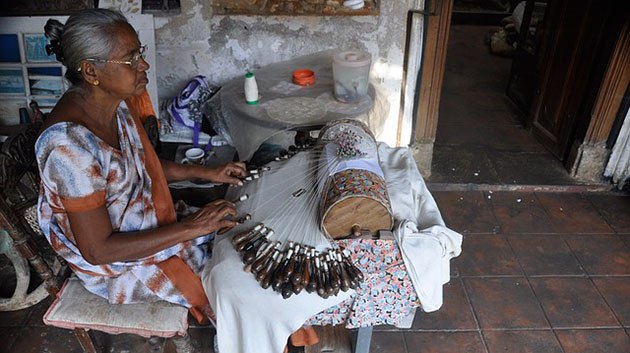Nathkulasinham Nesemalhar, a 54-year-old widow from the former war zone of northern Sri Lanka was promised work in Oman as a maid for an affluent family. She was to receive a nice room, decent working hours and 30,000 rupees ($150) a month to pay off her debts.
Instead, she found herself trapped in a dimly-lit room with no ventilation with other women. She was brought out each day, sent to different homes to clean, and then locked up again every night.
“There were 15 of us. We never got paid. Finally we got back home when the Sri Lankan government intervened,” said the mother-of-three.
Abuse of domestic workers from Africa and Asia in countries such as Saudi Arabia, Qatar, Bahrain and Oman is reported often. But Nesemalhar’s story spotlights a new trend in Sri Lanka, where thousands of war widows face a lack of opportunities, making them easy prey for human traffickers.
After a 26-year conflict with the Tamil Tigers, Sri Lanka is in its eighth year of peace. The conflict claimed more than 100,000, with around 65,000 missing and millions more displaced by violence, which was concentrated primarily in the Eastern and Northern Provinces.
The United Nations estimates more than a fifth of the 250,000 households in this region are headed by women like Nesemalhar – war widows who have become breadwinners. Without jobs or opportunity to support their families, these women are forced to go into debt, making them vulnerable to exploitation by trafficking networks.
Recruitment agencies employ local villagers who are known and trusted in their communities and who scout for indebted and impoverished women. They claim to offer decent jobs, generous salaries and a good life. The women must sign a basic contract and fill in some paperwork – but they are often misled about the real terms and conditions.
This situation amounts to a form of bonded labor, where government-registered recruitment agencies trick victims into believing fees will not need to be paid.







Freedom United is interested in hearing from our community and welcomes relevant, informed comments, advice, and insights that advance the conversation around our campaigns and advocacy. We value inclusivity and respect within our community. To be approved, your comments should be civil.